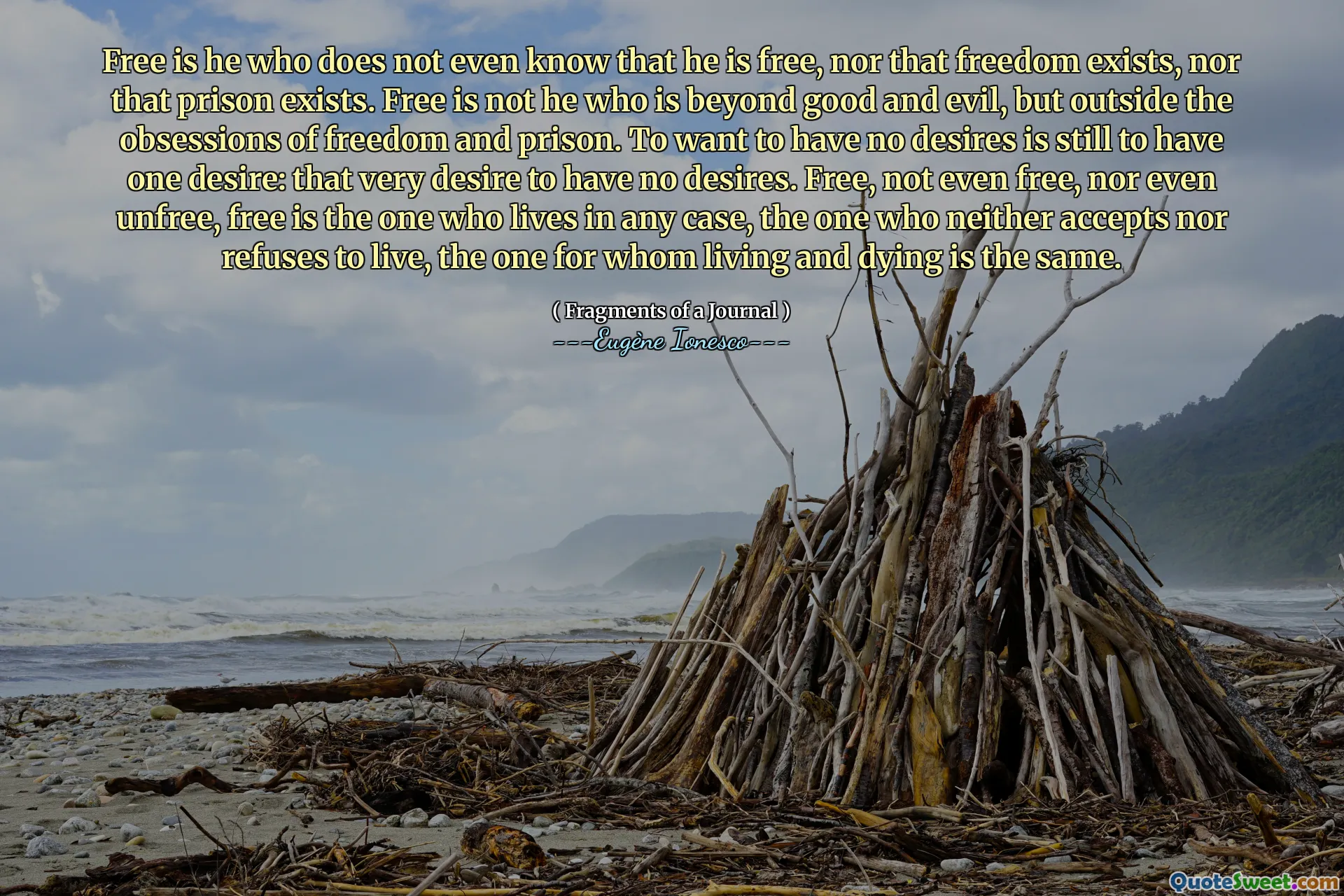
Free is he who does not even know that he is free, nor that freedom exists, nor that prison exists. Free is not he who is beyond good and evil, but outside the obsessions of freedom and prison. To want to have no desires is still to have one desire: that very desire to have no desires. Free, not even free, nor even unfree, free is the one who lives in any case, the one who neither accepts nor refuses to live, the one for whom living and dying is the same.
This quote poignantly explores the paradoxes inherent in the concept of freedom. It challenges our typical binary expectations — freedom versus imprisonment, good versus evil, desire versus renunciation — by suggesting that true freedom transcends these oppositions. The idea that freedom is not knowing about its own existence or about its opposite conditions introduces a profound existential perspective: awareness of limitations or aspirations might itself be a form of bondage. This touches on how sometimes our very definitions of freedom become traps; constantly seeking freedom can ensnare us in obsession, much like imprisonment.
Furthermore, Ionesco presents a bold assertion that desiring to have no desires is still a form of desire, highlighting the difficulty in detaching ourselves from constant craving or aversion. It raises an important question about the nature of desire and whether ultimate renunciation is truly attainable or merely another manifestation of wanting.
The concluding part offers a subtle existential surrender — freedom is neither absolute nor absent, but lies within the acceptance of living without resistance or rejection. To live and die being indifferent mirrors a stoic or even absurdist embrace of life's realities without clinging or aversion.
This reflection challenges readers to reconsider the conventional parameters of freedom. Instead of a state to be reached or a condition to be guarded, freedom here becomes a fluid state of mind, where one exists beyond the dichotomies imposed by society or self-imposed mental constructs. It encourages a contemplative engagement with existence that goes beyond superficial notions of autonomy and captivity.






